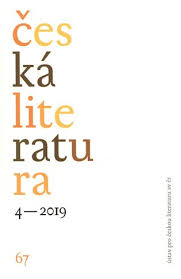Proměny „venkovské prózy“ v české literatuře let 1939–1945
Changes in “rural prose” in Czech literature 1939–1945
Orientations, returns, perspectives
Author(s): Lukáš HolečekSubject(s): Czech Literature
Published by: AV ČR - Akademie věd České republiky - Ústav pro českou literaturu
Keywords: Ruralism (literature); rural prose; political ideologies; Protectorate of Bohemia and Moravia (1939–1945);literary criticism;
Summary/Abstract: This study aims to portray the changes in the village novel and in approaches to rural subjects in post-1939 prose under the Protectorate of Bohemia and Moravia. The author primarily focuses on the ideological concept of ruralism as a programmatic approach to rural issues and analyses the ways in which it was applied to literary and cultural policy in the new post-1939 political context. The inclusion of some figures from ruralist circles in cultural policy under the Second Republic (i.e. in the period following the signing of the Munich Agreement on 1st October 1938 and the establishment of the Protectorate on 14th September 1939), along with the award ofthe state prize for literature to the short story collection Věnec jeřabinový (Rowanberry Wreath 1939) by leading ruralist theoretician Jan V. Sedlák did not prevent ruralist ideas from gradually subsiding and losing their importance under the intense criticism of that period. In 1941 literary critic Bedřich Fučík rejected the principal ruralist proposition that a return to the countryside would result in a moral resurgence. Literary criticism began to seek out new artistic quests and tasks as rural subjectmatter. The author illustrates these processes both in several ruralist novels by Josef Koudelák and in Přerod (Regeneration, 1943), a novel by Pavla Buzková, which was an attempt within that period context at a «new village novel». Literary criticism at that time and a number of works on rural topics from the Protectorate period demonstrate that there was a clear attempt at that time to open up ruralism (and the rural world) to the broader subject range and ethical perspectives of the modern novel. Separate attention is paid in this study to the issues surrounding the Blut und Boden ideology and its reception in Czech literature and through works in translation.
Journal: Česká literatura
- Issue Year: 67/2019
- Issue No: 4
- Page Range: 497-522
- Page Count: 26
- Language: Czech

